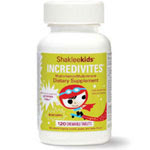I read an article this weekend in Dr. Mercola's newsletter that contained some very useful information on sorting out Organic Food Labels. (You can read the whole article here.)
Most of us are financially unable to purchase all of our foods with a Certified Organic Label. We would like to bring home the most nourishing foods for our loved ones, but does it have to be organic?
There has been a lot of debate about whether or not organic foods actually contain more nutrients, but a recent EU study showed that organic foods do, in fact, contain more beneficial components than their conventional counterparts. For example:
- Organic fruit and vegetables contain up to 40 percent more antioxidants
- Organic produce had higher levels of beneficial minerals like iron and zinc
- Milk from organic herds contained up to 90 percent more antioxidants
So, how do you know which organic foods are worth the extra money? Mercola recommends looking for the USDA Organic seal. He says, "This seal is your best assurance of organic quality. Growers and manufacturers of organic products bearing the USDA seal have to meet the strictest standards of any of the currently available organic labels." In his article, he lists out some of these standards, which you can read here.
Interestingly enough, Mercola also recommends EWG's Organic Buyer's Guide for help in selecting which produce it matters most to buy organic and which we can buy conventionally. Click here to read my post from last March in which I recommended using this great resource.
Are you asking, "So where do I start?" Keep an eye out for the USDA Organic Seal, print out EWG's Guide, and keep in mind these thoughts from the end of Mercola's article:
"Non-organic meats actually have far higher concentrations of pesticides than all of the fruits and vegetables. And the highest concentration of pesticides is actually in non-organic butter. So if you can only buy one organic food item it should be butter. Your next priority would be meats, and once those are addressed, then you’ll want to focus on the fruit and vegetable list [from EWG]."
I hope my brief notes on Mercola's article help you sort out the some of the confusion on buying organic... If you've got the time, check out his full article... there is so much more I could have mentioned, but I like to keep things short and simple.
And, by the way, if you are wondering about my meal plan for this week, I will be late in making it since I won't see what is in my produce box until later tonight. Any suggestions for healthy meals? We're up for something new!










































2 comments:
Interesting about the butter.
Here's a really yummy meal we like to eat. We replace the shrimp with chicken and use homemade chicken stock and spelt pasta. We've had butternut squash in our produce box lately.
http://www.faithfulprovisions.com/2009/07/09/cooking-101-pasta-shrimp-butternut-squash/
Here are a couple new meals we're trying:
http://joyinmykitchen.blogspot.com/2009/05/zucchini-carrot-and-black-bean.html
http://joyinmykitchen.blogspot.com/2008/12/veggie-rice.html
Here's a link to our favorite cornbread muffins:
http://undeservingofgrace.blogspot.com/2009/09/cranberry-pecan-corn-muffins.html
Post a Comment